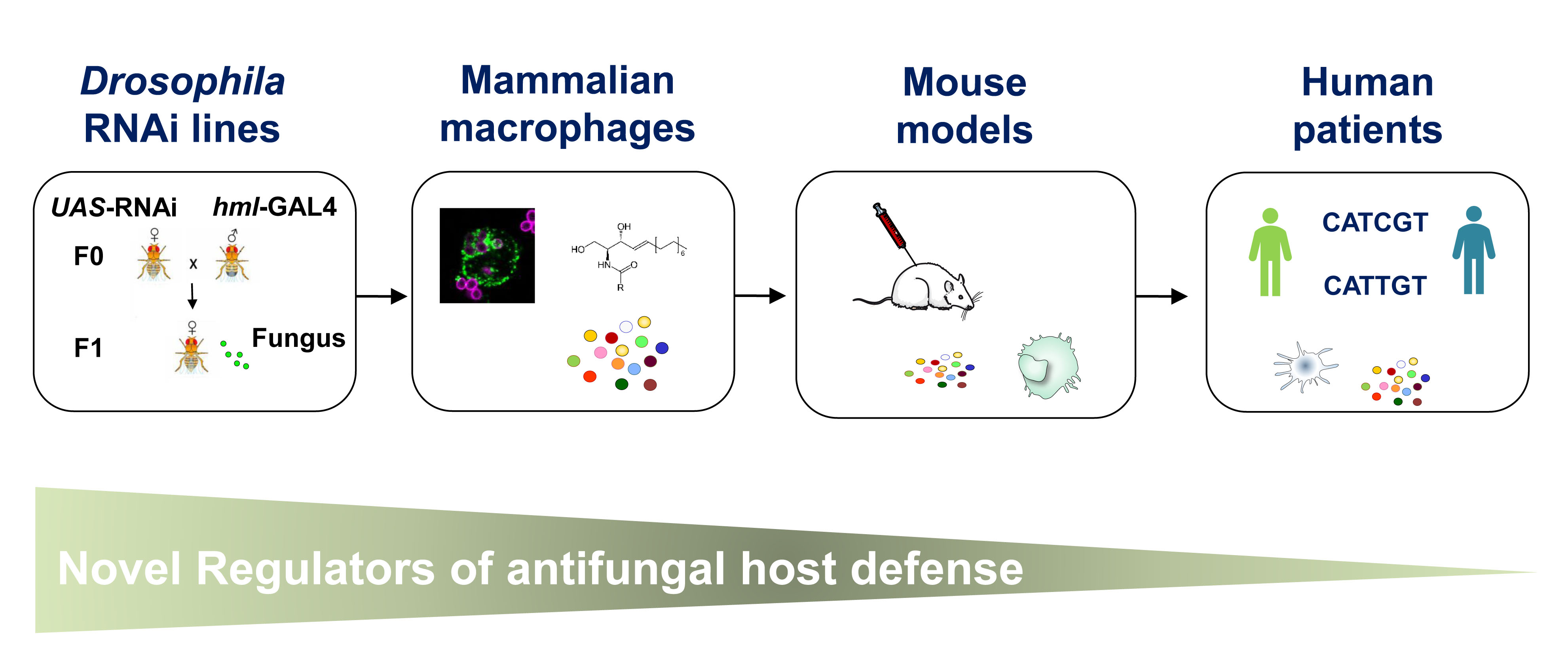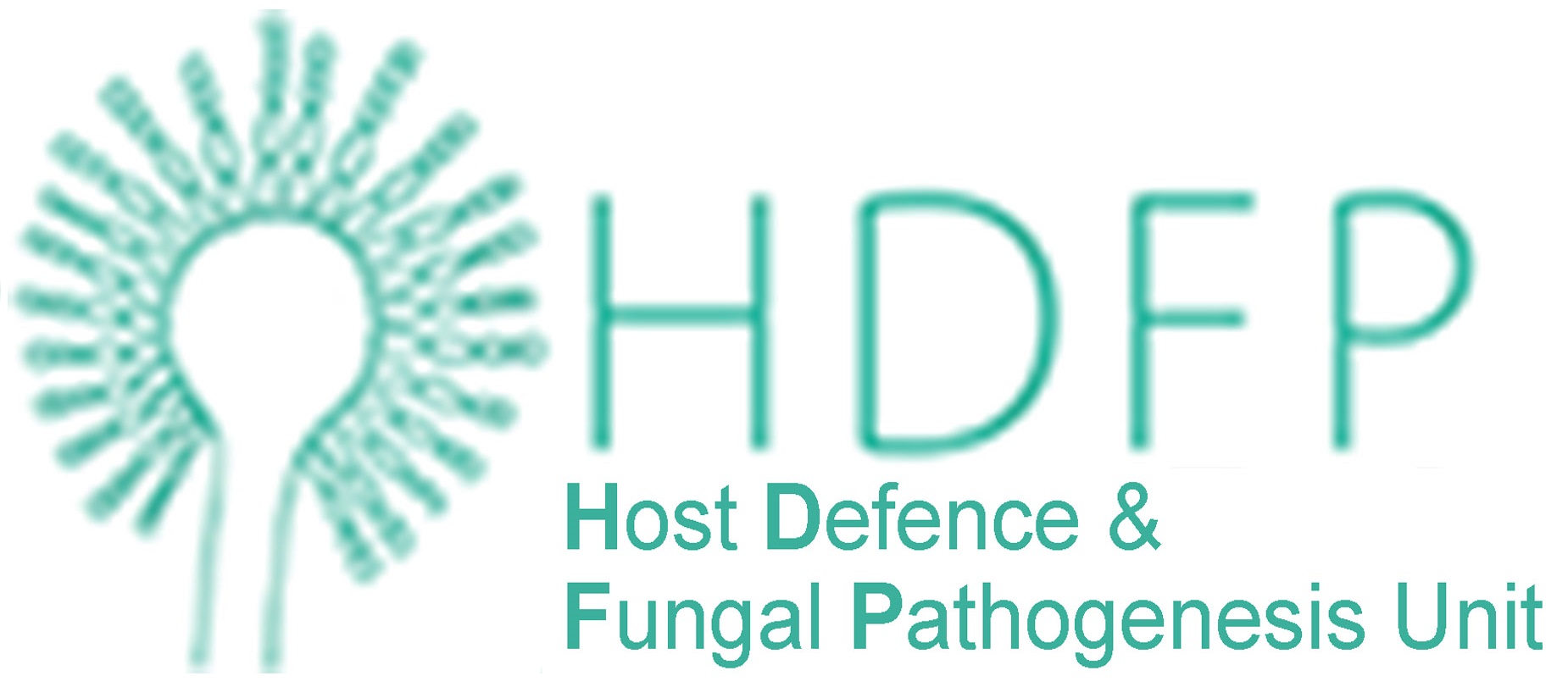Our research has two main directions:
(i) a basic science path aiming to understand mechanisms of host-fungal interplay with emphasis on molecular interactions in the phagosome
(ii) a translational path that explores mechanisms of immune dysfunction leading to development of IMI and immunomodulatory strategies aiming to restore phagocyte defects in patients at high risk for IMI.
To achieve our goals in part (i) of our research we utilize:
(a) Multi-omics approaches in primary immune cells and isolated phagosomes to identify novel antifungal effector pathways and their regulation by cell metabolism
(b) In vivo genetic screens in Drosophila melanogaster RNAi strains to identify evolutionarily conserved antifungal host defense mechanisms in phagocytes
(c) Advanced bioimaging tools, molecular and biochemical approaches to functionally validate the physiological importance of novel host effectors
(d) Transgenic mice to explore the role of identified host pathways and pathogen effectors in physiological antifungal immunity and disease pathogenesis.
To achieve our goals in part (ii) of our research we participate in International Collaborative Networks (TRANS-CPA and HDM-FUN) aiming to understand
pathogenesis and mechanisms of response to immunotherapy in patients with IMI. In parallel, we perform prospective biobanking of clinical samples from
immunocompromised patients of interest and maintain an expanding collection of tissue biopsies from patients with IMI diagnosed at the University Hospital of
Heraklion, Crete. Ongoing clinical protocols allow for assessment of the immunomodulatory activity of clinically-approved compounds on phagosome
biogenesis and macrophage immunometabolism. Finally, in order to dissect interesting immune phenotypes identified in human studies, we perform
mechanistic studies in physiologically relevant mouse models of IMI.


